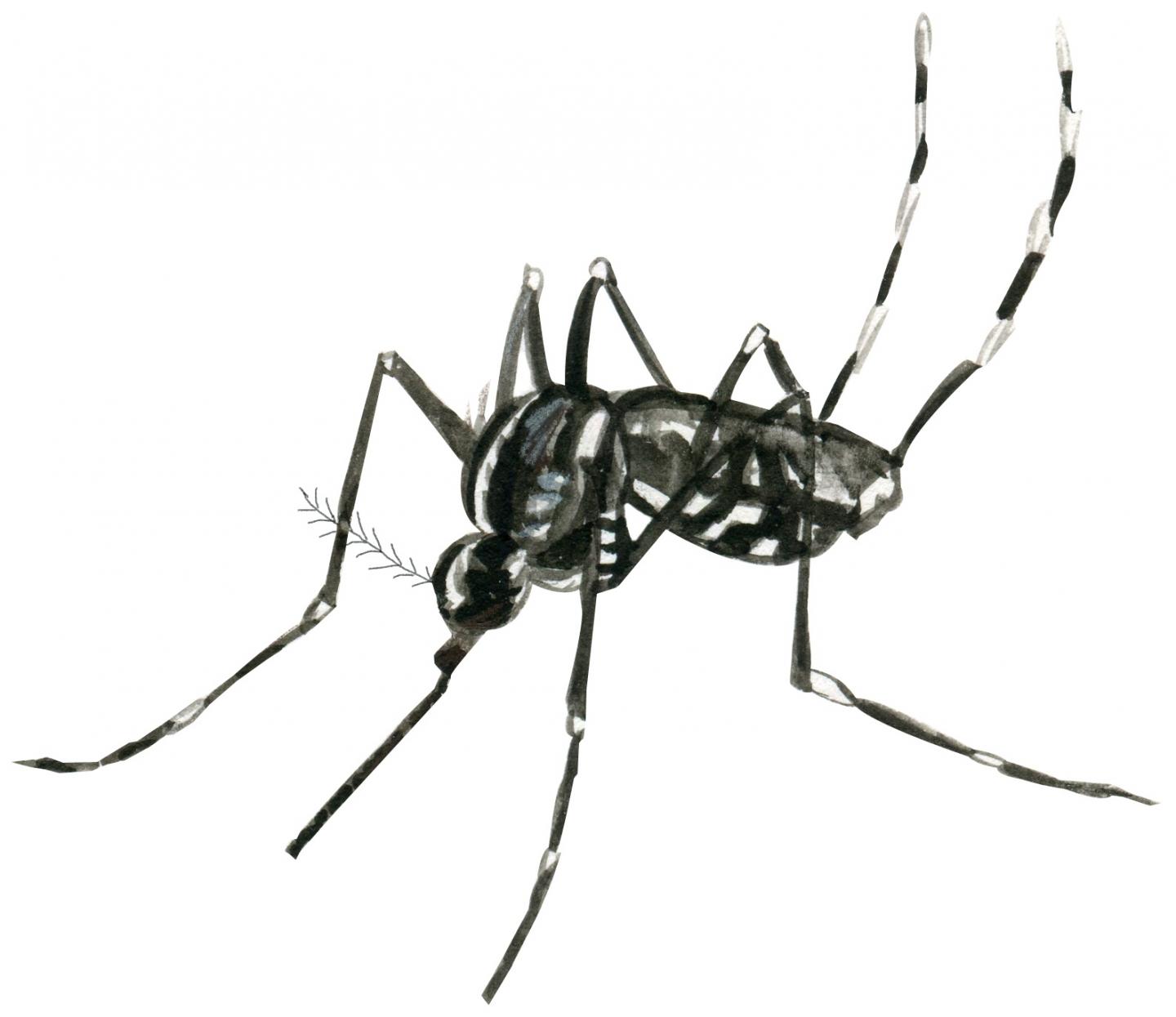Study is first to link mosquito feeding and reproduction to the egg yolk protein vitellogenin

Credit: Elena Lusiardi
Feeding mosquitoes sugar makes them less attracted to humans, a response that is regulated by the protein vitellogenin, according to a study publishing May 9 in the open-access journal PLOS Biology by Jessica Dittmer, Paolo Gabrieli and colleagues at the Università degli Studi di Pavia in Italy.
Female mosquitoes must feed on blood to provide energy and nutrients for their developing eggs, but they can also supplement their diet with sugars by drinking plant nectar or sap. The team fed young female tiger mosquitos (Aedes albopictus) sugar solutions, and found it reduced their attraction to human skin. Female energy levels constantly increase after feeding sugars, and they are not related to the insects’ motivation to find a host.
Transcriptome sequencing revealed a wave of gene expression changes associated with this reduction in host-seeking behaviour, which affected at least 23 genes including the vitellogenin gene Vg-2 – known to play a role in ovary development. RNA interference experiments to knockdown the Vg-2 gene expression restored the mosquitos’ attraction to humans, confirming the gene’s key role in regulating feeding behaviour.
It’s known that vitellogenin, an egg yolk precursor protein, influences reproduction and foraging in queens and workers of social insects such as ants and bees, but this is the first time it’s been linked to these processes in a solitary insect. High levels of vitellogenin expression in response to sugar only occurred in young mosquitos; the authors suggest this may reflect a strategy by young adults to feed on sugar to supplement energy reserves they failed to accumulate as larvae. The findings suggest an interesting avenue for research into disease prevention — by manipulating vitellogenin levels scientists could reduce mosquitos’ tendency to bite humans and transmit infections such as Malaria, Dengue fever and Zika virus, which are collectively responsible for over 700,000 deaths each year.
“In this context, our research team focused on the molecular mechanisms that control the mosquito host-seeking behaviour, that is the mechanisms that affect the attraction to human host,” Dr Gabrieli said. “If we can alter these pathways, reducing the motivation of the mosquitoes to bite humans, we would reduce the dimension of the mosquito population and, in turn, the transmission of the diseases.”
###
In your coverage please use this URL to provide access to the freely available article in PLOS Biology: http://journals.
Citation: Dittmer J, Alafndi A, Gabrieli P (2019) Fat-body-specific vitellogenin expression regulates host-seeking behaviour in the mosquito Aedes albopictus. PLoS Biol 17(5): e3000238. https:/
Funding: This work was supported by the Fondazione Cariplo Project 2016-0952 to PG (http://www.
Competing Interests: The authors have declared that no competing interests exist.
Media Contact
Paolo Gabrieli
[email protected]
Related Journal Article
http://dx.




